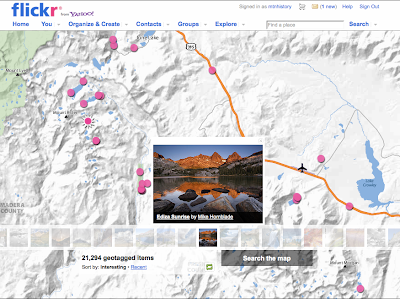This may be as good a time as ever to post about my
love for creative commons. While a have lagged with posting this past week, I assure you Creative Commons and copyright has been at the forefront of my thoughts. Why? Because I am a blogger. A very specific type of blogger who is trying to promote local businesses. I am a wedding blogger. Weddings are big industry, and we are in the midst of a recession. More brides are going the budget and Do-It-Yourself (DIY) route, which is where I come in. I blog from the budget-DIY angle. Still, in the interest of supporting the local economy, I try to use images and write posts about local businesses and wedding vendors. And this evening, I was told by a local vendor that if I wanted to post images or get any advice or tips from them, I would have to pay for it. What!?
But let me begin at the very beginning, when I first got into digital media, social media, and the world wide web. I was first introduced to the concept of creative commons few years ago, when I started "getting into" the internet, web 2.0, and web development. Now I am not talking about the license mind you. Not yet anyway. Rather, I was introduced to the concept.
You see, I very quickly realized that, in the exponentially expanding world wide web, the old adage, "if your build it they will come" is no longer true (if it ever was.) So the question becomes, in the midst of billions of websites--thousands in your niche--how will people find YOU? Well, through linking of course. This is how blogs survive and get the word out. Search Engine Optimization (SEO) currently favors the link-and-link-alike model.
Link and Link Alike:
So the name of the game becomes this: I set up a website. I sign up for social networking accounts such as Twitter, FaceBook, YouTube, and Vimeo, or what have you. I also set up a corresponding blog. I begin to produce quality content that readers likely want. Now here is where it gets tricky. Good content is essential, but it's not enough. I need other people to vouch for me, and to recommend me. They do that by linking to my site/blog/social-media-account-of-choice.
- So, what do I do? I link to other people's blogs under a link-and-link-alike convention.
- What else do I do? I post comments on other blogs and on FaceBook Walls, retweet and reply on Twitter, comment on photo and video sharing sites, and comment on networks.
Bottom line: being a blogger (or a business with a web presence) is about relationships. Creative Commons allows those relationships to flourish without cumbersome contracts. In my case, Creative Commons allows bloggers to get content and provide free marketing for businesses. I am so bummed that the vendor I queried is not on the same page. All I want to do is provide free marketing for local vendors.
The other side of the coin:
Another local vendor--a photographer--who graciously allows me to use his images, wants to vet all my posts using his images, and me to run a script that will prevent right click downloading of images. We will call him Joe. At first I was feeling a bit prickly about this with a WTF-I'm-providing-free-advertising attitude. Then Joe explained that in the past he had his images ripped off by another photographer who pawned them as their own in portfolios. OMG! I have not considered that! Joe makes a living off of his images and his reputation as a talented photographer. If someone uses his images to masquerade as a fine photographer, it literally takes money out of Joe's pocket.
So What License is the Best?
Well, that depends on my profession. If I don't make an exclusive living off of my digital work--be it photos, videos, or software--then I think a simple attribution license through creative commons will suffice and will make it easy and attractive for people to use my work, attribute it to me, and (of course) link back to my site. This makes sense in my current position as a Digital Heritage Project Coordinator. Similarly, if my primary goal is to get the word out about my project, blog, or business, I would start with a Creative Commons attribution license. However, if I were a wedding or any other type of photographer, I would have to figure out how to walk that line between getting the word out and protecting my livelihood.
Incidentally, I have not had a photographer refuse to provide images yet. They simply retain full copyright over their work, which means I need to plan ahead and ask them for specific images to support specific posts.I will not say which vendors seem to be the most tight-fisted with information. Nonetheless, as I work with real businesses who are trying to make real money, my heart goes out to them and I respect their decisions.
While I disagree with some who refuse to allow their work, ideas, or advice leave their immediate control, and I disagree over whether or not the benefits of freely sharing information outweigh losses, I must respect their wishes. In the meantime, I am forced to take my time, and plan my blog posts out sometimes weeks or months in advance so I can get proper permissions. This may not be such a bad thing for me, as it forces me to think about my audience and the scope of the project.































